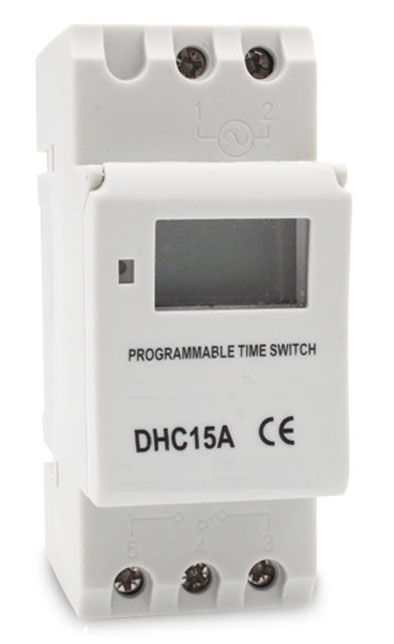China's new energy vehicles are in a transition period from R & D to true industrial development. In 2012, with the intensive appearance of new energy vehicle policy planning, the new energy vehicle industry has accelerated its development again.
Recalling the first half of the year, on March 5, the Ministry of Science and Technology issued the "Twelfth Five-Year Special Plan for Electric Vehicle Technology Development"; on April 18, the State Council executive meeting discussed and passed the "Energy Saving and New Energy Vehicle Industry Development Plan (2012-2020 ) "; On May 16, the executive meeting of the State Council studied and adopted policies and measures to promote the consumption of energy-saving products.
This series of policies accelerates the development of new energy vehicles, but also promotes the development of the new energy vehicle core technology-battery industry.
A person who has been engaged in research and development of new energy vehicles for many years told the Securities Daily reporter: "At present, batteries for new energy vehicles (currently referred to as electric vehicles) are nothing more than lead-acid batteries, lithium-ion batteries, fuel cells, etc. Although, nickel-metal hydride battery technology is relatively mature, I predict that nickel-metal hydride batteries will gradually be replaced by lithium-ion batteries and fuel cells in a few years. "
Enterprises focused on tackling the bottleneck of lithium batteries. In 2010, it can be said that the investment in China's lithium battery industry broke out. According to the statistics of ChinaVenture Investment Group, in 2010, China's power battery industry disclosed 18 private equity financing cases. This also includes Yiwei Lithium Energy invested by Dachen Ventures.
Industry insiders once predicted that Yiwei Lithium Energy, which mainly targets smart watches, security, consumer electronics, RFID and other downstream fields, the sales growth rate of lithium manganese batteries in 2012 is expected to exceed last year.
On July 4, a person close to Yiwei Lithium Energy told the Securities Daily reporter: "At present, Yiwei Lithium Energy has developed into lithium batteries for electric vehicles based on the previous lithium battery technology."
"By the end of this year, Yiwei Lithium Energy is expected to have two new energy busses going offline. The reason why Yiwei Lithium Energy has not blindly invested in new energy family cars before is because it is considered that the bus buses are more maneuverable. There is a fixed line and no speed is required. The company has investigated that the speed of bus buses driving in the city is basically about 60 kilometers per hour, and electric drives can meet this condition. Although the bus buses launched by the company are still used It is a hybrid of electric and electric power, but the oil drive is only for battery charging, which can guarantee a fuel saving rate of 50% to 70%. And, the bus can have a fixed time for charging and power replacement. "The above-mentioned relevant person told reporters .
At the same time, he said: "The company's current lithium batteries for electric vehicles are different from those involving BYD. BYD chooses a family car and invests a lot. However, Yiwei lithium energy is optimistic about the electric bus. And it was developed on the basis of the company's lithium battery production. "
Lithium battery safety is still the key to talking about China's lithium battery industry. The above-mentioned people said that they can be summed up in "chaos"! "At present, the batteries produced by China's lithium battery companies are still mainly used in mobile phone batteries and computer notebook batteries. However, due to the low technical content of such batteries, there are many companies that can do. Taking the Pearl River Delta as an example, there are tens of thousands There are many “small workshop†companies like this. Since many of the batteries produced by the “small workshop†are produced manually or semi-automatically, the voltage is unstable and the stability of the battery is not guaranteed. This battery is used in mobile phones There are risks in batteries, not to mention use in electric vehicles. "
In addition, experts agree that to successfully enter the market, electric vehicles must solve three problems: long range, small battery weight and safety, acceptable prices for consumers, and easy charging. Today, except for prices that can be solved through government subsidies, the problems of safety and charging stations are still difficult to solve.
"From the battery point of view, the batteries used in electric vehicles in our country are mainly lead-acid batteries and lithium batteries. However, lead-acid batteries will produce serious pollution in the production and recycling process, and the" heat escape "characteristics of lithium batteries at high temperatures are also safe. Hidden dangers, a battery's "heat escape" will also cause a chain reaction of the surrounding batteries, which will have serious consequences. "The above experts said.
Analysts pointed out that according to the outline of the "New Energy Development Plan" previously released, the next major task of the industry should be to break through the bottleneck of power battery technology, including the development of new technologies such as battery self-activation voltage control and thermal control to improve battery safety.
Digital Timer automatically turns the power of various powered devices on and off according to the time set by the user. The control object can be a street lamp, a neon lamp, an advertising sign lamp, a production device, a broadcast television device, and the like, and all power devices and household appliances that need to be turned on and off periodically. Built-in 1.2V/40mA can be charged, high precision, industrial grade chip, strong anti-interference.

Timer Relays,Time Delay Relay,Digital Timer Switch,24 Hr Timer Relay
Ningbo Bond Industrial Electric Co., Ltd. , https://www.bondelectro.com